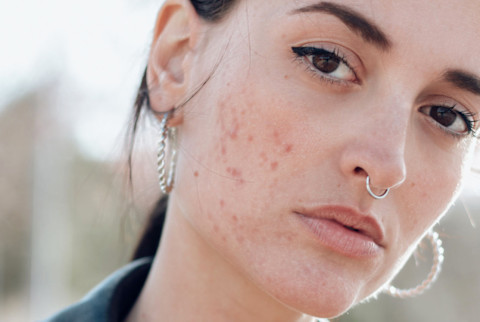This Combination Of Factors REALLY Causes Acne, Says New Study

Have you ever wondered why acne is so hard to get rid of? It seems like there are thousands of pills, potions, and gels out there designed to support our skin health and get rid of pimples—and yet it's rare to hear of someone actually curing their acne with one of them.
To add to the problem, scientists are rethinking what we've long thought was the underlying cause of acne, a type of bacteria called Propionibacterium acnes. Research has shown that we all have this type of bacteria on our skin, but obviously, not all of us have acne. So what's the catch?
As it turns out, there are different types of P. acnes bacteria, and some of them are associated with acne while others are not. It's proven difficult to distinguish the "good" P. acnes bacteria from the "bad" ones using our current research models, which is why new research from the University of California San Diego School of Medicine is so exciting.
For this study, the researchers developed a new mouse model that was able to mimic human acne by adding on synthetic sebum (a waxy skin secretion that is often produced during our teenage years). By adding in this extra factor, the researchers were able to compare strains of P. acnes that were associated with health and strains that were associated with acne directly and in a way that was relevant to humans.
The results, published in JCI Insight, found that when they applied both sebum and "bad" strains of P. acnes, the result was human-like acne and inflammation in the skin that lasted for weeks. But if they used just "bad" P. acnes or just sebum, there was no significant change in the skin. This means that it's likely the specific combination of sebum and "bad" P. acnes that's at the root cause of acne.
So what does this mean for the future of acne treatment? According to George Y. Liu, M.D., Ph.D., "Since we know exactly which genes differ between these strains, next we can pinpoint exactly what it is about the acne-associated strains that allows them to cause skin lesions...and that information will help us develop new therapies that specifically block those acne-promoting factors or tip the balance of a person's skin chemistry in favor of the healthy strains."
While this study won't cause us to overhaul our acne treatment and prevention plans, we are one step closer to finding a truly effective solution. And that sounds pretty good to us!
